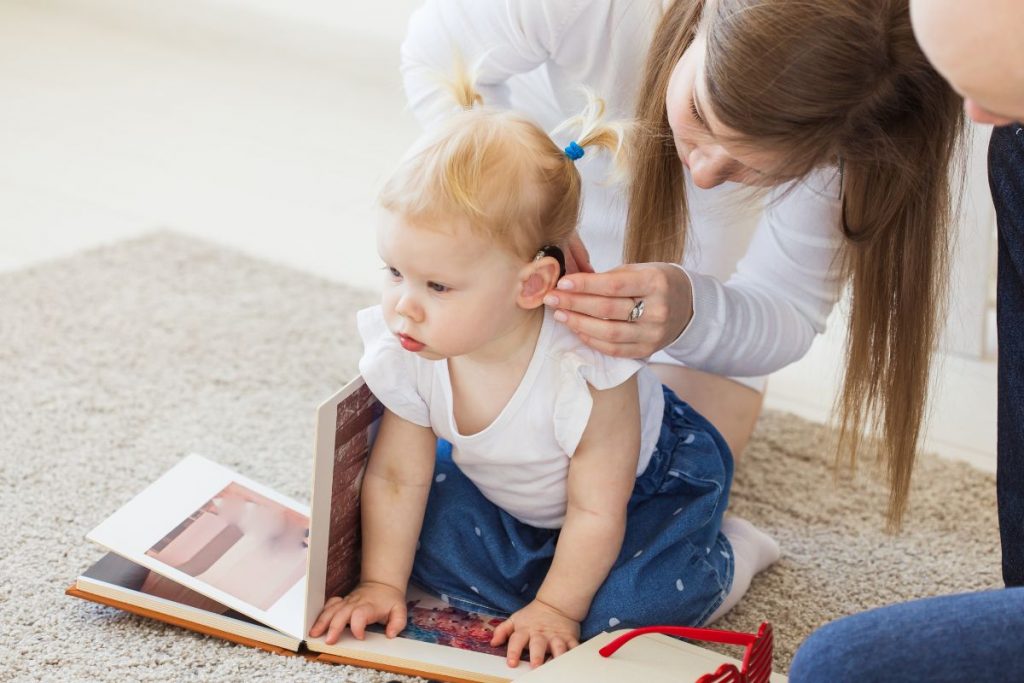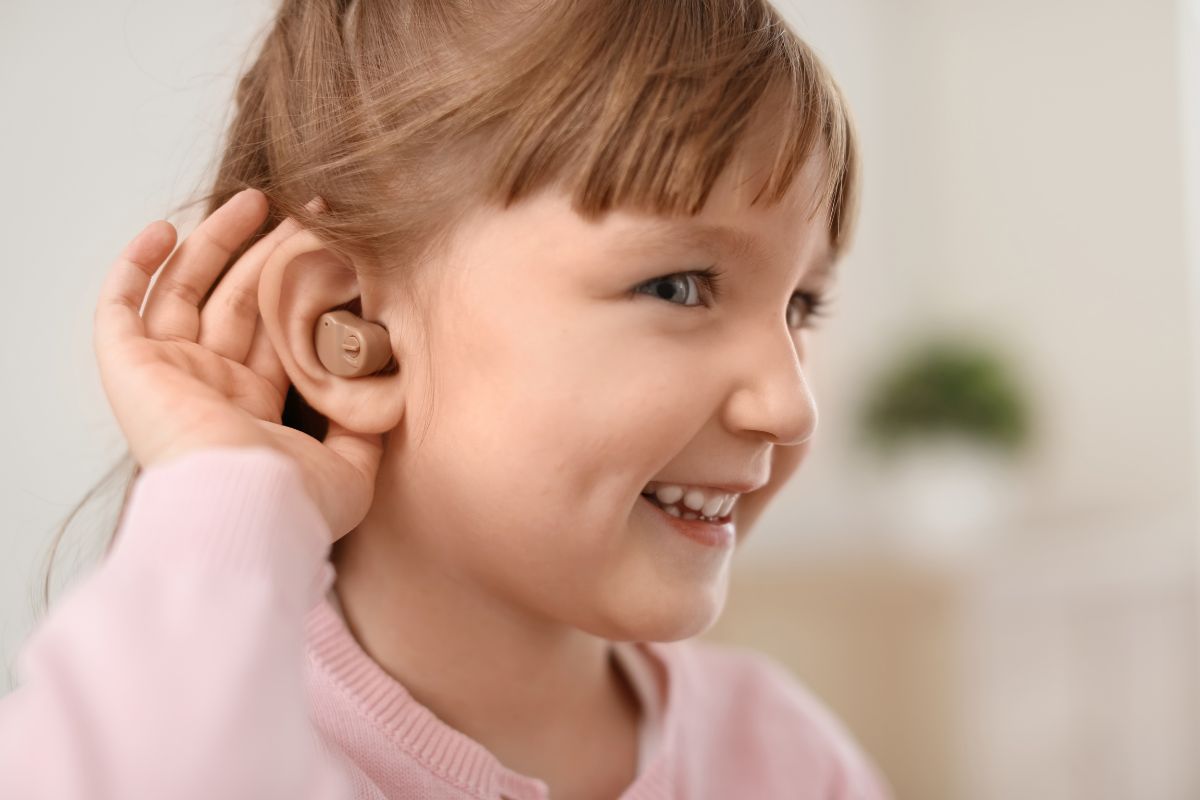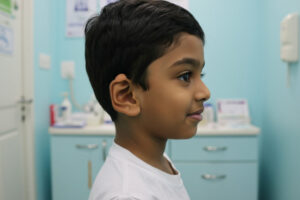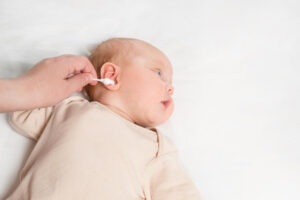Introduction to Pediatric Hearing Loss

In the discourse presented here, Dr. Shree Rao provides insights into Pediatric Hearing Loss. She is the Best Doctor for Cochlear Implants.
Pediatric hearing loss is a significant health concern affecting infants, children, and adolescents worldwide. This condition, characterized by a diminished ability to perceive sounds, can profoundly impact a child’s speech, language development, academic achievement, and social interactions.
As a seasoned healthcare professional specializing in pediatric otolaryngology, Dr. Shree Rao plays a pivotal role in the diagnosis, treatment, and management of pediatric hearing loss. With expertise in assessing auditory function, prescribing appropriate interventions, and providing comprehensive care, Dr. Rao ensures that children with hearing loss receive personalized treatment plans tailored to their specific needs.
Types and Degrees of Hearing Loss in Children
Conductive Hearing Loss
Conductive hearing loss occurs when sound waves are unable to pass efficiently through the outer or middle ear. This type of hearing loss may result from conditions such as fluid buildup in the middle ear (otitis media), ear infections, or abnormalities of the ear canal or middle ear structures. In children, conductive hearing loss can often be temporary and may improve with medical or surgical intervention.
Sensorineural Hearing Loss
Sensorineural hearing loss involves damage to the inner ear (cochlea) or the auditory nerve pathways to the brain. This type of hearing loss is typically permanent and may be congenital or acquired. Congenital sensorineural hearing loss can be genetic or due to prenatal factors, while acquired sensorineural hearing loss may result from conditions such as infections, head trauma, or exposure to ototoxic medications or loud noise.
Mixed Hearing Loss
Mixed hearing loss is characterized by a combination of conductive and sensorineural components. This means that there is impairment in both the outer/middle ear and the inner ear or auditory nerve. Mixed hearing loss can present unique challenges in diagnosis and management, as treatment approaches may need to address both the conductive and sensorineural aspects of the hearing loss.
Degrees of Severity
Hearing loss in children can vary in severity, ranging from mild to profound. The degree of hearing loss is typically categorized based on the intensity of sound that a child can hear across different frequencies. Mild hearing loss may result in difficulty hearing soft sounds or speech in noisy environments, while profound hearing loss can significantly impair a child’s ability to detect even loud sounds and speech.
Genetic Factors Contributing to Pediatric Hearing Loss
Genetic causes account for a substantial portion of pediatric hearing loss cases. These genetic abnormalities can affect the structure and function of the auditory system, leading to varying degrees of hearing impairment. Mutations in specific genes involved in auditory development and function can disrupt the delicate processes of inner ear development, transmission of auditory signals, or maintenance of cochlear hair cells.
Inherited genetic conditions are often responsible for congenital hearing loss in children. These conditions may follow various inheritance patterns, including autosomal dominant, autosomal recessive, X-linked, or mitochondrial inheritance. Examples of inherited genetic conditions associated with hearing loss include Connexin 26-related hearing loss (the most common cause of non-syndromic genetic hearing loss), Pendred syndrome, and Usher syndrome.
Acquired Causes of Pediatric Hearing Loss

Acquired hearing loss in children refers to hearing impairment that develops after birth, often resulting from various environmental factors or medical conditions.
Prenatal Factors
Acquired hearing loss can result from prenatal factors that affect fetal development. Maternal infections during pregnancy, such as cytomegalovirus (CMV), rubella, or herpes simplex virus, can lead to congenital hearing loss in the newborn. Additionally, exposure to certain medications, toxins, or substances, including alcohol and tobacco, during pregnancy may increase the risk of hearing impairment in the child.
Perinatal Factors
Perinatal factors refer to conditions or events occurring around the time of birth that can contribute to acquired hearing loss in children. Premature birth, low birth weight, birth trauma, or complications during delivery may predispose infants to hearing impairment. In particular, infants requiring intensive care in neonatal intensive care units (NICUs) are at higher risk of developing hearing loss due to factors such as oxygen deprivation or exposure to ototoxic medications.
Postnatal Factors
After birth, various postnatal factors can lead to acquired hearing loss in children. Ear infections, such as otitis media, are common culprits, as recurrent or chronic infections can damage the delicate structures of the middle ear and impair hearing. Head trauma resulting from accidents or physical abuse can also cause hearing loss in children. Additionally, exposure to loud noise, either from recreational activities or occupational environments, can result in noise-induced hearing loss.
Ototoxic Medications
Certain medications have the potential to cause ototoxicity, resulting in hearing loss or damage to the auditory system. Ototoxic medications include aminoglycoside antibiotics, loop diuretics, and certain chemotherapy drugs. Children undergoing treatment with these medications, particularly over prolonged periods or at high doses, may experience irreversible hearing loss as a side effect.
Environmental Influences on Pediatric Hearing Loss
Prolonged exposure to high levels of noise poses a significant risk to pediatric hearing health. Common sources of noise exposure include recreational activities, such as concerts and sporting events, as well as occupational settings like construction sites. Continuous exposure to loud noises can cause irreversible damage to the delicate structures of the inner ear, leading to noise-induced hearing loss. Implementing measures such as hearing protection devices and noise regulation protocols is imperative in mitigating the impact of noise exposure on children’s hearing.
Exposure to second-hand smoke presents a significant environmental risk factor for pediatric hearing health. Both prenatal exposure to maternal smoking and postnatal exposure to environmental tobacco smoke have been linked to an increased incidence of middle ear infections (otitis media) and subsequent hearing loss in children. Public health initiatives aimed at reducing smoking prevalence and implementing smoke-free policies can play a crucial role in protecting children from the adverse effects of second-hand smoke on their auditory health.
Children may be exposed to various environmental toxins and pollutants that can impact their auditory system. Heavy metals such as lead and mercury, as well as industrial chemicals, have been associated with adverse effects on auditory development. Efforts to minimize children’s exposure to these substances through pollution control measures and regulatory interventions are essential in safeguarding their hearing health.
Impact of Hearing Loss on Child Development
Speech and Language Development
Hearing plays a fundamental role in the development of speech and language skills during the formative years of childhood. Children with untreated or inadequately managed hearing loss may experience delays or difficulties in acquiring spoken language, as they are unable to fully access auditory input. Without timely intervention, these delays can persist and potentially impact academic success and social interactions later in life.
Social-Emotional Development
Communication is integral to social interaction and emotional expression. Children with hearing loss may encounter challenges in effectively communicating with peers and adults, leading to feelings of isolation, frustration, and low self-esteem. Difficulty in understanding social cues and participating in group activities can further hinder the development of social skills and interpersonal relationships, potentially affecting the child’s overall well-being.
Academic Achievement
Hearing loss can pose significant barriers to academic achievement, particularly in environments reliant on verbal instruction and auditory learning. Children with untreated hearing loss may struggle to comprehend spoken instructions, engage in classroom discussions, or follow along with lectures. Consequently, academic performance may be compromised, leading to challenges in meeting educational milestones and fulfilling academic potential.
Cognitive Development
The ability to hear and process auditory information is closely linked to cognitive development. Hearing loss can impact cognitive processes such as attention, memory, and problem-solving, as children expend additional effort to compensate for auditory deficits. Untreated hearing loss may hinder cognitive development and academic progress, underscoring the importance of early intervention to optimize cognitive outcomes.
Quality of Life
Hearing loss can profoundly affect a child’s overall quality of life, influencing their ability to communicate, learn, and engage with the world around them. Untreated hearing loss may lead to feelings of frustration, social isolation, and diminished self-confidence. However, with appropriate intervention, including hearing aids, cochlear implants, and supportive services, children with hearing loss can achieve improved communication abilities, enhanced social interactions, and greater participation in academic and extracurricular activities, ultimately leading to a higher quality of life.
Early Intervention and Support Services
Newborn Hearing Screening and Diagnosis
Early intervention begins with newborn hearing screening, conducted shortly after birth to identify infants at risk for hearing loss. Infants who do not pass the initial screening are referred for further diagnostic testing to confirm the presence and degree of hearing loss. Timely diagnosis allows for early intervention to commence, maximizing the benefits of intervention during critical periods of auditory development.
Pediatric Audiological Services
Pediatric audiologists play a central role in the assessment and management of hearing loss in children. They conduct comprehensive evaluations to determine the type, degree, and configuration of hearing loss, utilizing a variety of diagnostic tests such as auditory brainstem response (ABR) testing and otoacoustic emissions (OAE) testing. Pediatric audiologists collaborate with other healthcare professionals to develop individualized treatment plans tailored to the specific needs of each child.
Hearing Technology and Assistive Devices
Hearing aids and cochlear implants are key components of early intervention for children with hearing loss, enabling access to auditory input and facilitating language development. Hearing healthcare professionals work closely with families to select and fit appropriate hearing technology based on the child’s hearing loss profile and communication goals. Additionally, assistive listening devices such as FM systems and captioning services may be utilized to enhance communication in various environments.
Speech and Language Therapy
Speech and language therapy plays a pivotal role in supporting the communication skills of children with hearing loss. Speech-language pathologists (SLPs) work with children and their families to develop individualized therapy plans targeting speech production, language comprehension, and pragmatic communication skills. Early and intensive intervention can help mitigate the effects of hearing loss on speech and language development, promoting functional communication abilities.
Early Childhood Education and Intervention Programs
Early childhood education and intervention programs provide structured learning environments tailored to the needs of children with hearing loss. These programs offer opportunities for language-rich interactions, socialization with peers, and exposure to academic concepts. Educators and interventionists incorporate auditory-verbal or total communication approaches to facilitate language learning and literacy development in children with hearing loss.
Family-Centered Support Services
Family involvement is integral to the success of early intervention efforts for children with hearing loss. Family-centered support services provide education, guidance, and emotional support to parents and caregivers throughout the intervention process. Supportive resources may include parent education workshops, counseling services, and peer support groups, empowering families to advocate for their child’s needs and navigate the challenges associated with hearing loss.
Conclusion
In conclusion, pediatric hearing loss is a multifaceted condition that requires prompt recognition and intervention to mitigate its impact on a child’s development. Through early diagnosis, evidence-based interventions, and ongoing support from healthcare professionals like Dr. Shree Rao, children with hearing loss can overcome barriers, achieve their full potential, and thrive in all aspects of life.

Why consult EarSurgeon, Dr. Shree Rao?
Dr. Shree Cuddapah Rao is acclaimed as one of the best pediatric ENT specialists in Hyderabad. With 10+ years of deep domain experience in the field of ENT, she is the director at Dr. Rao’s ENT Super Specialty Hospital. She underwent specialized training in Rhinoplasty / Facial Plastic surgery at Singapore General Hospital, Singapore. She also underwent advanced training in cochlear implant surgery under Padmashri Dr. Milind V Kirtane and had a Fellowship in a cochlear implant. Having performed over 200 successful cochlear implants for patients worldwide, Dr. Shree Cuddapah Rao is also the recipient of several prestigious accolades in the domain of ENT. Dr. Shree Rao is one of the best ent doctor in hyderabad, to book an appointment click here.
Are you looking for
then you have landed at right place!







